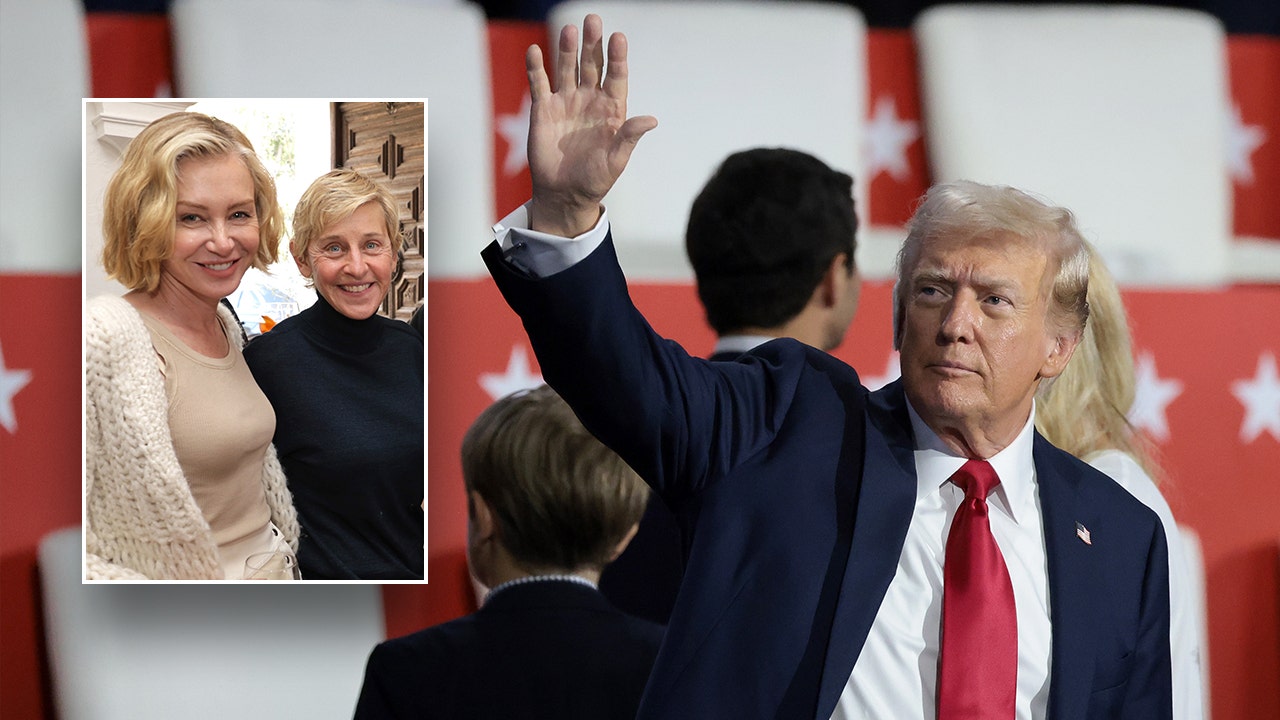Infra
Live: Israeli troops enter southern Lebanon as IDF confirms ‘targeted raids’, huge blasts heard across Beirut
IDF warning issued for south Lebanon citizens
A spokesperson for the IDF has issued an “urgent” warning for citizens in south Lebanon due to intense fighting taking place in the region.
“Heavy fighting is taking place in the south Lebanon area, where Hezbollah elements are exploiting the civilian environment and the population as human shields to launch attacks,” military spokesperson Avichay Adraee wrote on X.
“For your personal safety, we ask you not to move vehicles from the North to the area south of the Litani River.
This warning is in effect until further notice.”
Video shows aftermath of air strikes in Beirut
It’s 9:25am in Beirut at the moment.
In this ABC News Channel package, smoke can be seen billowing from the city following fresh air strikes.
Loading…
IDF confirms projectiles fired towards Metula
The IDF has confirmed that several projectiles were fired across the border into Israel’s north today, prompting sirens to sound in Metula and Avivim.
It said some projectiles were intercepted while others fell in open areas.
The statement comes after a Hezbollah claim that the militant group targeted IDF troops in Metula with artillery shells.
Israel launches ‘precise’ strikes in Beirut
The IDF says they have conducted precise strikes on weapons manufacturing sites and infrastructure belonging to Hezbollah in Dahieh in Beirut.
An IDF statement says the IAF conducted the strikes yesterday “with the direction of IDF intelligence”, after taking steps “to mitigate the risk of harming civilians, including by issuing warnings to civilians in the area, the use of precise munitions, and aerial surveillance”.
While the statement claimed Hezbollah “intentionally embeds its weapons manufacturing facilities and weaponry beneath civilian population centers in Beirut, using the civilian population as a human shield”, it also insisted the IDF would continue to strike the infrastructure “in order to restore security to the citizens of the State of Israel”.
Hezbollah targets IDF troops at Metula
Hezbollah has released a statement that it targeted Israeli troops across the border in Metula with artillery fire, but made no mention of Israel’s announcement that it had begun a ground incursion into Lebanon.
The statement, obtained by Lebanon’s National News Agency, read that the militant group targeted “a movement of enemy soldiers” at the site “with artillery shells and achieved direct hits”.
It said it carried out the operation “in support of our steadfast Palestinian people in the Gaza Strip, in support of their valiant and honorable resistance, and in defense of Lebanon and its people”.
IDF releases footage showing troops’ preparation, battle procedure
The Israeli military has just posted some footage of its soldiers preparing for the “targeted operations” in southern Lebanon launched this morning.
“After many months of operating in the Gaza Strip, where the soldiers of the division gained skills and operational experience, they moved north and are now operating in the northern arena after making the necessary adjustments for fighting in Lebanon,” a post to the IDF’s Hebrew account on X said.
Watch here:
Israeli strike on southern Lebanon home kills 10, state media reports
An Israeli attack on a home in the southern Lebanese town of Daoudiya, has killed 10 people from a family and wounded five others, Lebanon’s National News Agency is reporting.
It has named all the victims in a post to its website.
The IDF has not provided comment.
Artillery shelling has continued in the Marjeyoun plain, Khiyam, Kfar Kela, Wazzani, along the Litani River, the Khardali area, and towards Deir Mimas overnight, the agency reported.
UAE reaffirms support for Lebanon’s territorial integrity
The United Arab Emirates reaffirmed on Tuesday its unwavering position towards the unity of Lebanon, its national sovereignty, and its territorial integrity, its foreign ministry said in a statement.
The Gulf nation maintains diplomatic relations widely across the Middle East, including with Israel. It also supports the independence of Palestine.
UAE’s President Sheikh Mohamed bin Zayed Al Nahyan met with US President Joe Biden in Washington last week, where he “expressed a commitment to the two-state solution between Israel and Palestine”.
IDF intercepts rockets in northern Israel
Israel’s military says it has intercepted three rockets launched into the northern Israeli city of Safed from Lebanon on Tuesday morning, local time.
Its defence system was activated after launches in the Upper Galilee and Baram areas.
The IDF said one rocket “fell in an open area”.
Hezbollah and Israel have continued to trade fire along this border region through the past year of war in Gaza.
US cautions Iran against attacking Israel
Earlier, the Pentagon said it stood by Israel’s operations in southern Lebanon to ensure “Hezbollah cannot conduct October 7-style attacks on Israel’s northern communities”.
The US Secretary of Defense, Lloyd Austin, also explicitly warned Iran — Hezbollah’s main backer — it would face consequences if it attacked Israel in retaliation.
“The United States is well-postured to defend US personnel, partners, and allies in the face of threats from Iran and Iran-backed terrorist organizations and determined to prevent any actor from exploiting tensions or expanding the conflict,” he said in a post to X.
“I reiterated the serious consequences for Iran in the event Iran chooses to launch a direct military attack against Israel.”
What we know so far
For those just joining us, these are the latest developments in the ongoing hostilities between Israel and Hezbollah:
- Israeli military troops have entered southern Lebanon in what appears to be the beginning of a larger ground offensive
- Early on Tuesday, the IDF said it begun “targeted and localized” raids against armed group Hezbollah
- The IDF says its ground operation, called Northern Arrows, is so far limited to villages along the Lebanon-Israel border and is being conducted jointly by aerial and ground units
- Elsewhere, Israel has continued to launch air strikes around central Lebanon, south of the capital Beirut, and eastern areas, aimed at what it says are strategic Hezbollah targets
- Huge blasts were heard around Beirut and near its main airport overnight
- The US has backed Israel’s right to defend itself and the “necessity of dismantling” Hezbollah infrastructure
Earlier we heard from Ben Knight, our former Middle East correspondent based in Jerusalem. Here he provides an overview of warfare in the region and its possible impact:
Loading…
Israel will want to reassess offensive against Hezbollah given outcome of 2006 war: analyst
National security and intelligence expert Javed Ali says there will be strategic differences in the way Israel and Hezbollah approach warfare with one another following the war in 2006.
“One thing the IDF does not want to do is hold big structures of territory in southern Lebanon for weeks and months on end, because that is exactly what Hezbollah wants,” he told ABC News Channel.
“To lure the IDF in and tie them down and ratchet up the casualties on the IDF’s side, and then move and shoot and hide in these fortified positions and tunnel networks, use booby traps and small unit assault teams.
Loading…
“These are all the tactics that Hezbollah can use, but I don’t think the IDF will walk into that set up the way it occurred in 2006.”
Israel’s invasion of Lebanon in 2006, and the 34-day conflict that followed was ultimately considered a military failure by Israel.
It ended in a draw, with a UN-brokered ceasefire.
How is the conflict impacting Lebanese people?
Aid groups have raised alarm about the worsening humanitarian situation in Lebanon amid weeks of Israeli air strikes in the country’s south, eastern Bekaa Valley, and Beirut metropolitan area.
More than 1 million civilians have been displaced across Lebanon so far in what its Prime Minister Najib Mikati has called “the largest displacement that may have happened”.
Kirsten Sayers, interim CEO at Caritas Australia, says a full-scale war could induce an inflationary spiral in an already dire economic situation.
“If we look at past events that that have disrupted the supply of necessities in Lebanon – the Beirut blast, the invasion of Ukraine, COVID-19 – all these events have further increased inflation,” she said.
“It is entirely feasible that worsening conflict with Israel would have the same effect, as it would result in the destruction of critical infrastructure such as roads, and potentially make it hard for commercial companies and even aid organisations to get goods across borders.”
According to the European Union, an estimated 80 per cent of the Lebanese population lives in poverty. Lebanon also hosts the highest number of refugees per capita in the world.
“This is not a population that can withstand a war and protect innocent lives throughout.”
US says dismantling Hezbollah infrastructure ‘necessary’
In the last few minutes, US Defense Secretary Lloyd Austin confirmed he had spoken with Yoav Gallant, the Israeli minister of defence.
The US agreed it was “necessary” to dismantle attack infrastructure along the border so Hezbollah could not carry out “October 7-style attacks on Israel’s northern communities”, he said.
But Mr Austin also emphasised a diplomatic resolution was required so citizens on both sides of the border could return home safely.
Researcher says Israel capitalising on Hezbollah’s lack of organisation
Australian National University researcher John Blaxland spoke to ABC News Channel this morning.
The security and intelligence expert said the IDF was capitalising on Hezbollah’s momentary lack of effective communications and organisation.
Loading…
Strike on refugee camp ‘targeted Palestinian commander’
An apparent Israeli strike in Lebanon’s crowded Ain al-Hilweh Palestinian refugee camp was reportedly targeting a Palestinian commander.
Mounir Maqdah, commander of the Lebanese branch of the Palestinian Fatah movement’s military wing, the Al-Aqsa Martyrs Brigade, was the reported target of the strike.
Officials told both Reuters and AFP that the strike hit a building in the camp near the southern city of Sidon.
“The Israeli raid targeted the house of the son of Mounir Maqdah,” an official told AFP.
It is unclear if he was at the property at the time of the strike.
It marked the first strike on the camp, the largest of several Palestinian camps in Lebanon, since cross-border hostilities between Hezbollah and Israel broke out nearly a year ago.
The latest photos from Lebanon
Lebanese terrain will prove tough for Israel if it invades, analyst explains
Retired major general Gus McLachlan, who has served as the UN Peacekeeper in Lebanon, says it is more than likely Israel’s “limited” ground operations will expand but won’t come without challenges.
Drawing on his experience in the region, he says Lebanon’s terrain is “very easy ground to defend and very difficult ground to attack”.
McLachlan said despite Israel’s well-developed intelligence network, Hezbollah’s roughly 80,000 defenders spread across southern Lebanon and structures like ravines in which ambushers can hide, tunnels, and sniper holes under buildings could give the group the upper hand.
“The defender has a particular advantage.”
Watch his interview on ABC News Channel here:
Loading…
What assistance is being provided to Australians?
We’ve heard this morning that Canada and the United Kingdom have secured seats on commercial airlines to evacuate their citizens.
The latest update we have from the Australian government is that the Department of Foreign Affairs is working with citizens in Lebanon to secure tickets on commercial flights.
In a statement on social media last night, foreign minister Penny Wong said Australians in Lebanon who wish to leave should register on the DFAT portal.
People can also register on behalf of an Australian citizen, permanent resident or immediate family member in Lebanon.
“We know it’s a difficult decision to leave and difficult to find ways to leave with flight cancellations. @dfat is working with airlines to assist Australians secure tickets on commercial flights,” Senator Wong said.
Canada reserves 800 seats for Lebanon evacuation
Canada has reserved 800 seats on commercial flights to evacuate its citizens from Lebanon.
“The security situation in Lebanon is becoming increasingly dangerous and volatile,” Canadian Foreign Affairs Minister Melanie Joly wrote on X.
She added: “If you are a Canadian citizen in Lebanon, you must leave now.”
About 45,000 Canadians are currently in Lebanon and the next flight is scheduled for Tuesday.












